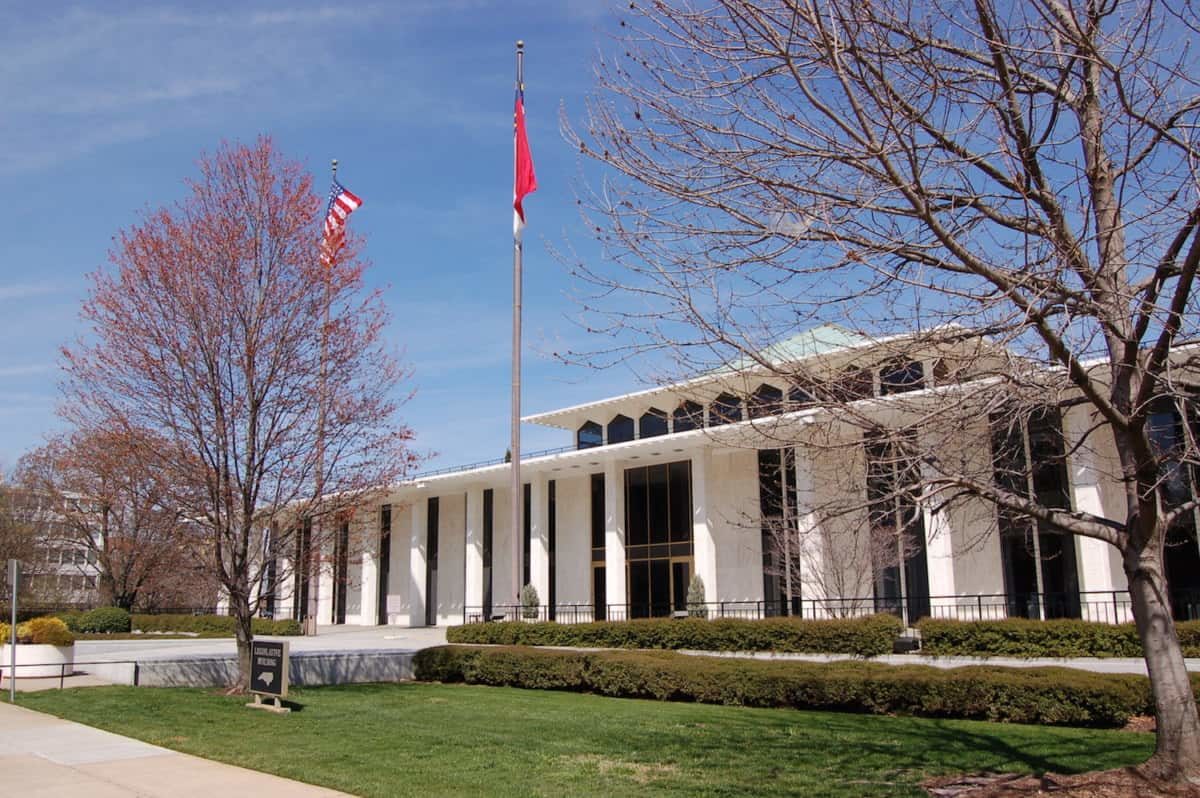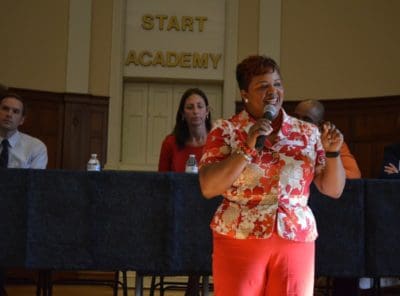

Updated to reflect discussion and votes on amendments
This morning, the North Carolina House discussed and gave a favorable vote to its education budget plan, which covers a lot of prominent issues discussed so far this session, including school-performance grades, school support positions, a virtual early learning pilot, and more.
Go here to view the money report.
Go here to read the special provisions.
There have been multiple bills filed this session to address school-performance grades, which some see as being unevenly weighted towards academic achievement. The budget plan changed the school performance grades to a 50/50 percentage split between academic achievement and academic growth. It also maintains the 15-point scale for the school performance grades.
An amendment adopted later in the afternoon tweaked the formula for the school performance grades slightly, making the split 51 percent academic achievement and 49 percent academic growth.
Classroom supplies have also been a hot topic since Superintendent Mark Johnson supported a bill that would provide $400 to every teacher to purchase their own classroom supplies. While there were no new funds under that plan, that money would come from the allotment districts get from classroom supplies — leaving only about $10 million statewide that goes directly to districts to purchase classroom supplies.
The budget included the plan to give $400 to every teacher while also increasing funding for classroom supplies. In the first year and second year of the biennium, there is a $15 million increase, non-recurring, to these allotments, bringing the total amount of money budgeted for classroom supplies to $62.5 million in both years of the biennium. With this increase, school districts would now have about $25 million to use for classroom supplies after every teacher in the state gets $400.
An amendment passed later in the afternoon changed the school supplies program, reducing the amount of money each classroom teacher would get to $145. That would essentially be paid for with the $15 million increases, leaving the remainder of the allotment for districts to purchase school supplies.
The budget also includes $1 million non-recurring for a virtual early learning pilot, which has become a controversial proposal suggested in the House over the past couple of weeks. An amendment later in the afternoon attempted to eliminate this provision and use the money instead to provide $150 stipends to teachers for classroom supplies. It failed.
Also included in the budget is $1 million non-recurring for the State Board of Education to develop a weighted-student formula for school funding. This is a proposal that has been discussed for years now in the General Assembly in an effort to reform the manner in which school funding is distributed.
The special provisions of the budget includes an item that would require the State Department of Public Instruction to put out a request for proposals for groups to do an evaluation of education funding in North Carolina and to come up with alternatives to the current allotment system.
School safety has been on everybody’s mind this session as the state struggles with inadequate ratios for school support personnel. The number of counselors, nurses, psychologists, and social workers are all much lower than nationally recommended ratios.
The budget includes $19 million non-recurring in the first year and about $30 million recurring in the second year for School Mental Health Support Personnel Grants.
Other items related to school safety include:
School safety officers: $3 million non-recurring in the first year, and $7.7 million recurring in the second year.
School Safety Equipment Grants: $3 million non-recurring in the first year, and $6.1 million non-recurring in the second year
School Safety Training Grants: $3 million non-recurring in the first year, and $4.6 million recurring in the second year
Students in Crisis Grants: $2 million non-recurring in the first year, and $4.6 million recurring in the second year
Other provisions in the budget, include one that would prevent school districts from changing their school calendar “unless necessary to address a severe weather condition, energy shortage, public health crisis, school safety crisis, emergency related to a school building or school transportation, or act of God.”
Also included in the budget is a provision that prevents teachers from taking personal leave unless a substitute is available. This comes in advance of the teacher rally next week, where large numbers of teachers have been asking off from their districts to attend. An amendment proposed in the afternoon would have eliminated this provision from the budget plan, but it was defeated narrowly 8-6.
For the community college system, the budget includes $8 million in the first year and $11.5 million in the second year for short-term workforce training. The Community college system will also get $2.8 million recurring in both years for career coaches. Both of these items were part of the community college system legislative agenda.
These are just some provisions and budget items from the document released during the committee today. Teacher and principal salaries are not included in this budget breakdown and will be presented next week.
Both state Superintendent of Public Instruction Mark Johnson and the North Carolina Association of Educators released statements about the budget plan.
Johnson said:
“While we are only at the beginning of the process, I am pleased to see so many of our #NC2030 top priorities in the House education budget bill. I thank the members of the NC House for their support. This plan continues the legislature’s focus on K-12 education, with substantial funding increases for classroom supplies, textbooks and digital resources, and school-safety grants providing mental-health supports and school safety resources. We have more work to do, but we are on the right track.”
NCAE President Mark Jewell’s statement came down on lawmakers for what he said were efforts to prevent educators from letting their voices be heard.
“We are still assessing the entirety of what was released by the House Education Committee this morning. We are deeply concerned about the attempt to prevent local boards of education from altering their schedules to accommodate local needs. The intent is clearly to prevent educators from coming to Raleigh to make our voice heard, as we will be doing on May 1. If lawmakers really want to stop educators from marching in Raleigh, they should work with us to address our legislative priorities in order to provide a high-quality, public education to all children in North Carolina.”
House appropriations is scheduled to take up the full budget next Wednesday.


